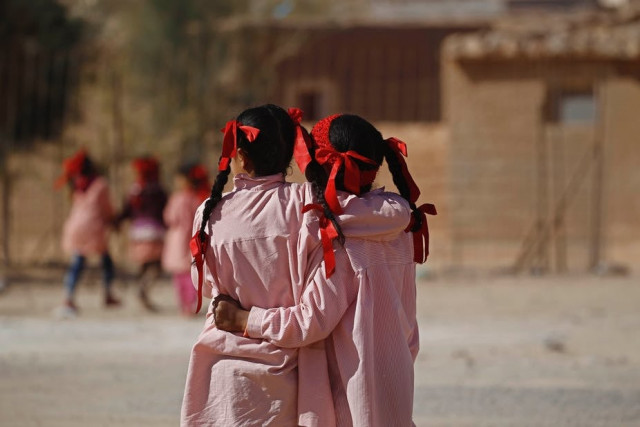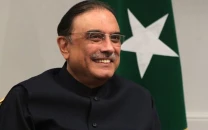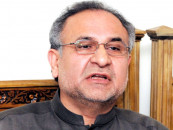Time for action
Together, we can create a world where no woman or girl is left behind because of her period. It’s time for action!

Representational image. PHOTO: REUTERS
Menstruation in Pakistan is highly stigmatised due, in part, to the traditional beliefs and patriarchal nature of society which mystifies female health.
In many social settings, menstruation is positioned as dirty, disgusting, and a source of shame. These social attitudes have a profound impact on restricting how girls behave, causing psychological distress. It is common for mothers (and sisters) to be unwilling to talk to their daughters and correct the malpractice; fathers to refuse support for purchase of essential products; and community leaders to support and uphold dangerous traditional practices.
In Pakistan, 49% of girls have no knowledge of menstruation prior to their first period and 44% do not have access to basic menstrual hygiene facilities at home, their workplace or school. Teachers are often reluctant to discuss the subject leaving mothers and elder sisters as the primary source of information for girls. Unfortunately, this information is only shared after the girls have had their first period. As a result, most girls start their periods uninformed and unprepared to deal with.
Over the past few years, Unicef, together with its partners, has managed to accelerate advocacy and action on menstrual hygiene in Pakistan and around the world. However, much more action is needed. More action to change negative social norms and practices. More action to catalyse progress on menstrual hygiene education. And more action to ensure access to products. More action from governments, funders, civil society, UN agencies and the private sector.
We believe that together, we can end period stigma. Together, we can make sure that all girls are informed about menstruation and how to manage it. And, together, we can also ensure that all women and girls have access to hygienic products.
Unicef and other development organisations are supporting the federal and provincial governments to address some of these barriers through research and studies. We are trying to better understand the knowledge, attitudes, beliefs and practices surrounding menarche and menstruation and to raise awareness on necessary actions and interventions that enable safe MHM. Supporting schools to construct and rehabilitate washrooms that allow girls’ privacy. The National MHM working group is also active in advocating for better MHM in the country.
One of our partners, Women Empowerment Group, is working with religious leaders across the country to dispel these misconceptions and promote positive societal change around MHM.
“Negative societal norms are not a part of Islam,” emphasised Dr Raghaib Naeemi, a senior religious leader during an MHM consultation workshop conducted by Unicef in collaboration with the Gender Studies Department, University of the Punjab.
Through this promising engagement, Pakistan’s Council of Islamic Ideology has published review papers on the subject and numerous articles in the mainstream national media. It has also created a platform for both male and female adolescents to openly and confidently seek clarity on religious perspectives vis-à-vis MHM. The launch of Unicef’s MHM campaign ‘No Chutti’ i.e. No Holiday was another platform that brought together over 300 boys and girls to discuss the topic. Tens of thousands followed the proceedings via social media.
MHM is one of our major priorities globally and in Pakistan. Together, we can create a world where no woman or girl is left behind because of her period. It’s time for action!
Published in The Express Tribune, May 29th, 2019.
Like Opinion & Editorial on Facebook, follow @ETOpEd on Twitter to receive all updates on all our daily pieces.




1724319076-0/Untitled-design-(5)1724319076-0-208x130.webp)














COMMENTS
Comments are moderated and generally will be posted if they are on-topic and not abusive.
For more information, please see our Comments FAQ